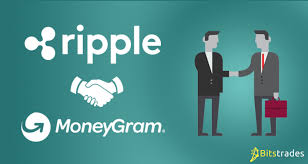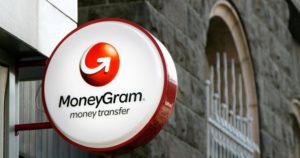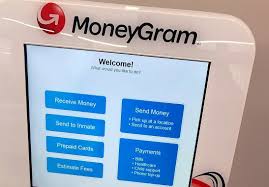Moneygram International often referred to as simply Moneygram was the result of the merging of two separate businesses, Traveler’s Express and Integrated Business Systems. The company is currently based in Dallas, Texas.
Traveler’s Express was once the largest provider of money orders until the company underwent reorganization in 1993. By the late 1990’s, Moneygram had more than 22,000 locations in 100 countries. By 2006, the company had expanded to Asia, Central America, and Eastern Europe. Today, the company offers bill-payments and online money transfers.
Moneygram went public in 2004 and is sold on the NASDAQ under the ticker symbol: MGI.
Company shares dropped 96% during the economic downturn in 2007 but has since recovered and has been in the black since 2009. In 2012, the company admitted to money laundering and wire fraud. Moneygram paid a fine in February of 2016 of $13 million, as well as $4 million in states costs and fees.
In 2013 the company considered putting themselves up for sale. In 2014, after losing a relationship with Wal-Mart Stores, it began restructuring to cut costs. From their peak in 2013 until late 2015, shares fell as much as 70%. Moneygram closed a Global Customer Care Operations center in Lakewood, Colorado, resulting in over 500 layoffs. Later, the company closed its 376-person Brooklyn Center operation in 2015. The company has offshored numerous positions to Warsaw, Poland from its Colorado and Minnesota locations for additional cost-cutting. Also in 2015, the company’s agent network in Africa reached 25,000 locations, including an agreement with the Mauritius Post Office.
Between late October 2016 and January 2017, Moneygram’s shares doubled in value. The company operates in more than 200 countries with a global network of about 347,000 agent offices.
In January of 2018. Moneygram and Ripple currency (also known as XRP) announced that they were making a partnership. Ripple CEO Brad Garlinghouse described the MoneyGram tie-up as a strategic one and said it would demonstrate XRP’s ability to lower costs for money transfers between friends and families. 
Also in January, the company called off its planned merger with a Chinese financial firm after failing to receive approval from the US government.
Moneygram
Moneygram International often referred to as simply Moneygram was the result of the merging of two separate businesses, Traveler’s Express and Integrated Business Systems. The company is currently based in Dallas, Texas.
History
Traveler’s Express was once the largest provider of money orders until the company underwent reorganization in 1993. By the late 1990’s, Moneygram had more than 22,000 locations in 100 countries. By 2006, the company had expanded to Asia, Central America, and Eastern Europe. Today, the company offers bill-payments and online money transfers.
Moneygram went public in 2004 and is sold on the NASDAQ under the ticker symbol: MGI.
Company shares dropped 96% during the economic downturn in 2007 but has since recovered and has been in the black since 2009. In 2012, the company admitted to money laundering and wire fraud. Moneygram paid a fine in February of 2016 of $13 million, as well as $4 million in states costs and fees.
In 2013 the company considered putting themselves up for sale. In 2014, after losing a relationship with Wal-Mart Stores, it began restructuring to cut costs. From their peak in 2013 until late 2015, shares fell as much as 70%. Moneygram closed a Global Customer Care Operations center in Lakewood, Colorado, resulting in over 500 layoffs. Later, the company closed its 376-person Brooklyn Center operation in 2015. The company has offshored numerous positions to Warsaw, Poland from its Colorado and Minnesota locations for additional cost-cutting. Also in 2015, the company’s agent network in Africa reached 25,000 locations, including an agreement with the Mauritius Post Office.
Between late October 2016 and January 2017, Moneygram’s shares doubled in value. The company operates in more than 200 countries with a global network of about 347,000 agent offices.
In January of 2018. Moneygram and Ripple currency (also known as XRP) announced that they were making a partnership. Ripple CEO Brad Garlinghouse described the MoneyGram tie-up as a strategic one and said it would demonstrate XRP’s ability to lower costs for money transfers between friends and families. 
Also in January, the company called off its planned merger with a Chinese financial firm after failing to receive approval from the US government.


